Shkoder, nestled in northern Albania, beckons visitors to embark on a captivating walking tour that unveils the city’s centuries-old charm. Strolling through the well-preserved Old Town, one marvels at the harmonious blend of Venetian and Ottoman architectural styles, each building a testament to the region’s rich cultural tapestry. As the tour progresses, intriguing stories of Rozafa Castle’s legendary past and the diverse religious sites that dot the cityscape come to life, offering a deeper appreciation for Albania’s heritage. From savoring traditional cuisine to exploring local artisan workshops, this immersive experience promises to leave a lasting impression on those seeking to uncover the best of Shkoder.
About Your Stay

-
Explore Shkoder’s well-preserved Old Town showcasing Venetian and Ottoman architectural influences, including landmarks like Rozafa Castle and Marubi Square.
-
Discover the historical significance of Rozafa Castle, an ancient citadel that defended Shkoder against various invaders throughout the centuries.
-
Visit diverse religious sites in Shkoder, including the prominent Sultan’s Mosque and the intricate Lekhbibaj Mosque, reflecting the city’s cultural heritage.
-
Enjoy a peaceful stroll along the scenic Buna River, observing local life and traditional Albanian boats while taking in the stunning mountain views.
-
Engage with Albanian culture and cuisine through a walking tour that highlights traditional handicrafts, regional dishes, and the stories of Shkoder’s vibrant heritage.
Exploring Shkoder’s Old Town
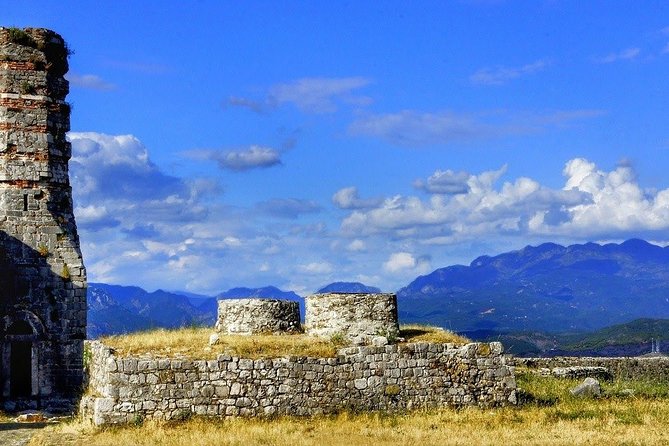
Visitors embarking on the walking tour will discover Shkoder’s captivating Old Town, a well-preserved historical district that showcases the city’s rich cultural heritage.
Strolling through its narrow streets, they’ll admire the distinctive Venetian and Ottoman architectural influences. Key landmarks, like the 18th-century Rozafa Castle, offer panoramic views over the Buna River and the Albanian Alps.
The tour guide will share insights into the town’s tumultuous past, from its role as a strategic fortress to its transformation into a thriving commercial center.
Highlights include the scenic Marubi Square, the intricate Legjenda e Kasterit mosaic, and the grand Cathedral of Saint Stephen.
Exploring Shkoder’s Old Town provides an immersive glimpse into Albania’s vibrant history and culture.
You can also read our reviews of more tours and experiences in Shkoder.
Discovering Rozafa Castle’s History
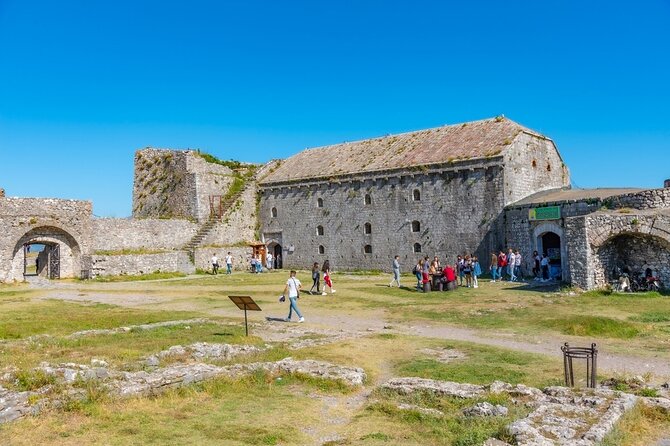
Rozafa Castle, a towering fortress that dominates the skyline of Shkoder, has borne witness to Albania’s tumultuous history for centuries.
This ancient citadel, dating back to the 4th century BC, has been a strategic stronghold, withstanding countless sieges and invasions. Visitors can explore its well-preserved walls, towers, and gates, each with a story to tell.
The castle’s legend revolves around a sacrificed woman, whose name is now synonymous with the site.
Three key facts about Rozafa Castle‘s history:
- It played a crucial role in defending Shkoder from Ottoman, Venetian, and other invaders throughout the centuries.
- Legends claim that the castle’s foundations were fortified with the bricks and mortar mixed with the milk, blood, and flesh of a sacrificed woman named Rozafa.
- Today, Rozafa Castle stands as a testament to Albania’s resilience and serves as a popular tourist attraction in Shkoder.
Admiring Shkoder’s Mosques and Churches
The charming city of Shkoder boasts a rich tapestry of religious architecture, with its mosques and churches standing as testaments to the region’s diverse cultural heritage.
One of the most prominent landmarks is the Sultan’s Mosque, a grand Ottoman-era structure adorned with elegant minarets. Nearby, the Lekhbibaj Mosque showcases intricate stone carvings and a captivating blend of Islamic and Balkan architectural styles.
Complementing these Islamic sites, the Cathedral of St. Stephen and the Church of the Blessed Virgin Mary stand as impressive examples of Catholic influence, their spires and stained-glass windows adding to Shkoder’s architectural allure.
Together, these religious buildings offer visitors a fascinating glimpse into Albania’s rich cultural tapestry.
Strolling Along the Buna River
Meandering along the Buna River, visitors can admire the serene waterway that winds through the heart of Shkoder. This picturesque river offers a tranquil respite from the bustling city.
Along the banks, visitors can observe local life, with fishermen casting their lines and residents strolling along the promenade. The Buna River also provides stunning views of the surrounding mountains and historic architecture.
Key highlights of strolling along the river include:
- Spotting traditional Albanian boats and enjoying the calm waters.
- Discovering hidden riverside cafes and restaurants.
- Witnessing the harmonious blend of natural and urban landscapes.
Learning About Albanian Culture
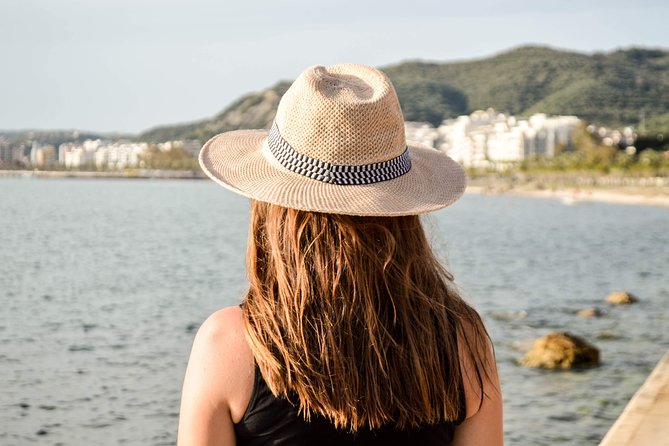
As visitors stroll along the Buna River, they can also enjoy the rich cultural heritage of Shkoder.
The walking tour provides an insightful glimpse into Albania’s history and traditions. Guests will visit landmarks like the Rozafa Castle, which dates back to the 3rd century BC. They’ll also explore the iconic Ebu Beker Mosque and learn about the country’s religious diversity.
Throughout the tour, the local guide shares stories that bring Shkoder’s vibrant culture to life. Travelers can discover traditional handicrafts, sample regional cuisine, and gain a deeper appreciation for Albania’s unique identity.
This immersive experience allows visitors to connect with the heart and soul of this fascinating destination.
Visiting Local Artisan Workshops
Amid the walking tour, visitors can discover the vibrant artisan workshops that showcase Shkoder’s rich cultural heritage.
These workshops offer a behind-the-scenes look at the intricate craftsmanship that has been passed down through generations. Visitors can observe skilled artisans creating traditional Albanian textiles, ceramics, and woodcarvings.
The tour highlights three notable workshops:
- The Marubi Photo Museum, featuring the work of the Marubi family, pioneering photographers who documented Albania’s history.
- The Rozafa Fortress Carving Workshop, where master woodcarvers create intricate designs inspired by the iconic fortress.
- The Shkodra Ceramics Center, showcasing the production of unique, hand-painted pottery.
These artisan workshops provide a captivating glimpse into the heart of Shkoder’s vibrant cultural identity.
Tasting Traditional Albanian Cuisine
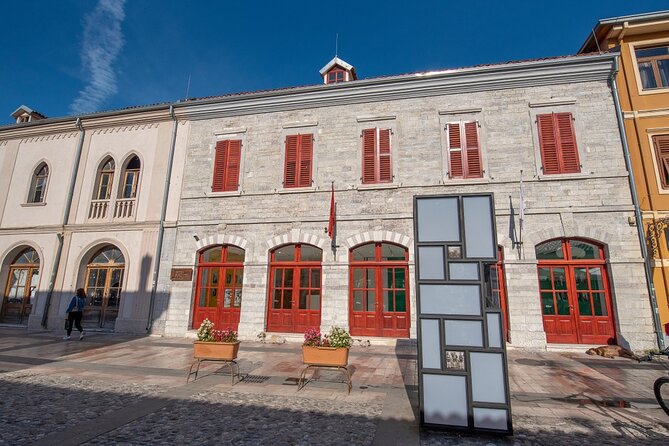
Through the walking tour, visitors can savor the rich flavors of traditional Albanian cuisine. The tour includes stops at local eateries, where guests can sample signature Albanian dishes like tavë kosi – a baked lamb and yogurt casserole.
They’ll also get to try byrek, a savory filled pastry, as well as typical Albanian salads and desserts. The guide provides insights into the history and cultural significance of these beloved national specialties.
By tasting these authentic flavors, travelers gain a deeper appreciation for Albania’s culinary heritage and the traditions that have been passed down through generations.
The food experience complements the other highlights of the Shkoder walking tour, offering a well-rounded culture.
Tips for Your Shkoder Tour
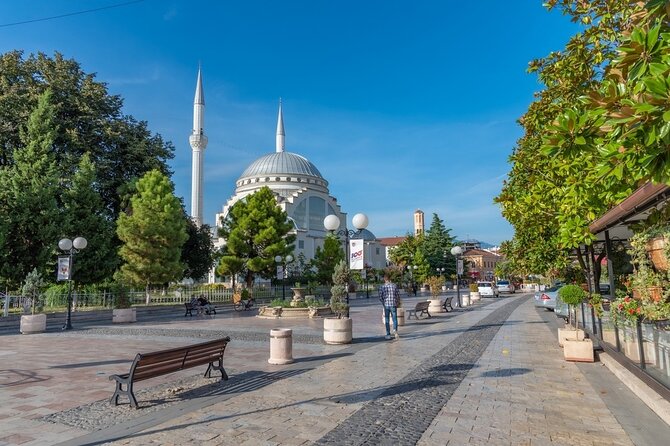
Preparing for your Shkoder walking tour can enhance your overall experience. To make the most of your tour, consider these tips:
-
Pack comfortable walking shoes, as the tour involves significant time on your feet exploring the city’s historic sites.
-
Bring a water bottle and light snacks to keep energized during the walk.
-
Familiarize yourself with the meeting location and arrive a few minutes early to ensure a punctual start.
These simple preparations will help you navigate the tour with ease and fully learn about the rich cultural heritage of Shkoder.
Worth The Stay
The Best of Shkoder Walking Tour offers an immersive experience that allows visitors to explore the city’s rich heritage. From the captivating stories shared by local guides to the opportunity to savor traditional dishes, this tour provides a well-rounded exploration of Shkoder’s cultural tapestry. Whether marveling at the architectural gems or learning about the region’s history, participants leave with a deeper appreciation for this vibrant Albanian destination.
